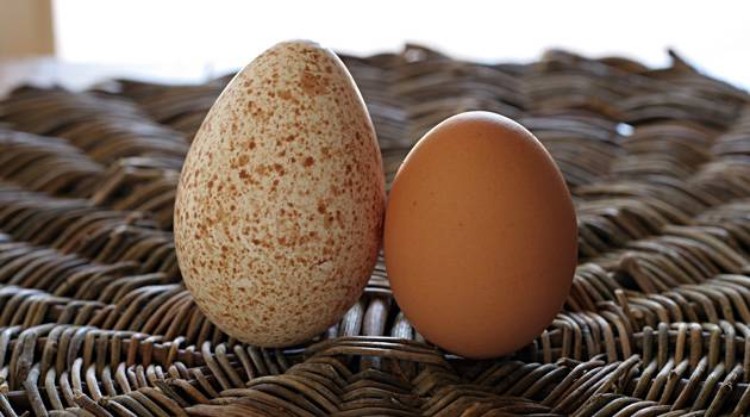Eggs Are a Staple and Turkey Is a Delicacy, so Why Don’t We Eat Turkey Eggs?
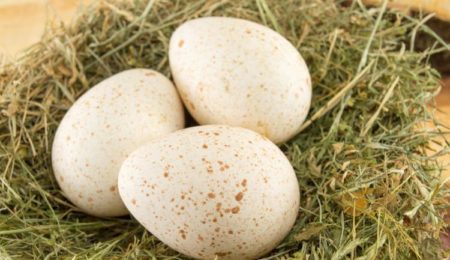
Turkeys are a Thanksgiving favorite — to the point of being a cliched festival delicacy in American households. Also, given the Americans’ love for eggs, have you ever wondered why turkey eggs are not popular? They also tick off all the boxes in the checklist of a breakfast egg. To top it all, a few experimental food bloggers have testified how these eggs taste pretty good, too. But then, why don’t we find turkey eggs on the grocery shelves like we do chicken eggs?
Table of Contents
How is a turkey egg different from a chicken egg?
The first thing that strikes most people about a turkey egg is probably its size. Several accounts by Turkey farmers or food bloggers mention that turkey eggs are big, anywhere between 25% to 50% larger than an average chicken egg. The speckled, deep-brown to reddish-brown spots on the shell make them stand out from a chicken egg. Most food bloggers often agree on one thing; they taste quite similar to a chicken egg, although several other differences set them apart. For instance, they’re harder to crack, and the yolk-to-white ratio is much higher, making them creamier. As for their nutritional profile, eggs themselves are considered nutrition-dense superfoods.
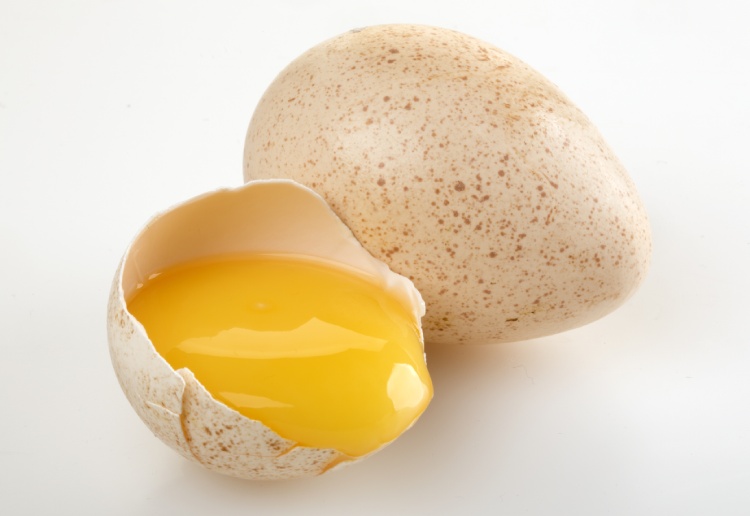
According to a study looking at the composition of different avian egg types, turkey eggs are a good choice for crude protein with the highest values for a fatty-acid profile. Food nutrition scientists label them as a good source of vitamin B, including vitamins B12 and B9. They also contain much higher fat and cholesterol content since it is not uncommon for turkeys to lay eggs with two yolks.
Working out the economics of turkey eggs
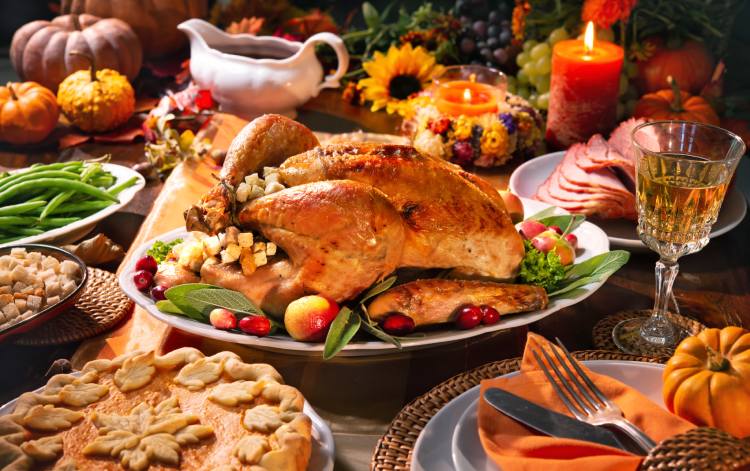
Talking of turkeys and their popularity, in 2011, 736 million pounds of turkey were consumed in the United States. Furthermore, 88% of Americans surveyed by the National Turkey Federation eat turkey on Thanksgiving. Translated into statistics, 46 million turkeys are eaten each Thanksgiving, 22 million on Christmas, and 19 million turkeys on Easter. Given the staggering numbers, how is it that turkey eggs are hardly available, let alone regularly consumed?
The sheer economics of turkey eggs renders them a not-so-viable option. To begin with, Turkeys are slow to start laying eggs. Since the bird has a longer life cycle, it takes roughly about 28 weeks before it can start laying eggs. Another important thing is that turkeys lay eggs much less frequently than other birds.
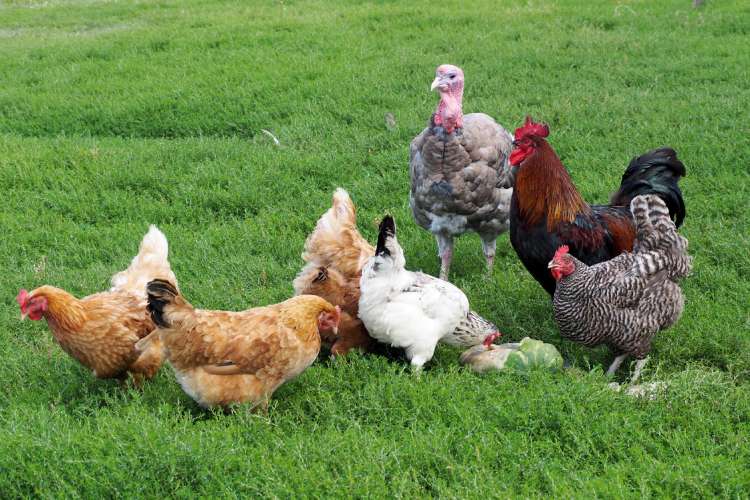
While a chicken would lay one egg per day, a turkey lays a maximum of two eggs in a week. Consider this against the backdrop of a more expensive poultry farm setting since turkeys are expensive to raise, require more space, and much more food than a chicken. All the elements factored together result in a turkey egg being expensive and unsustainable for turkey producers to enter the egg market.
Are there those who love their turkey eggs, and why?
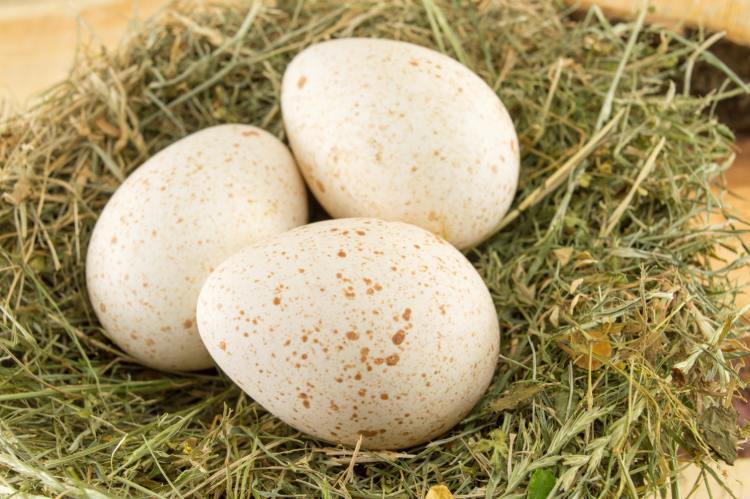
Some people with backyard turkeys who’ve tasted the eggs say they are not just edible but pretty tasty. Meanwhile, the consumption of several other eggs, like those of emu, goose, or quail, has made it into some exotic breakfast menus. While quail eggs (smaller than chicken eggs) are a popular garnishing option and a delicacy in many parts of the world, emu eggs and their increasing popularity in Australia have made it to prime-time shows.
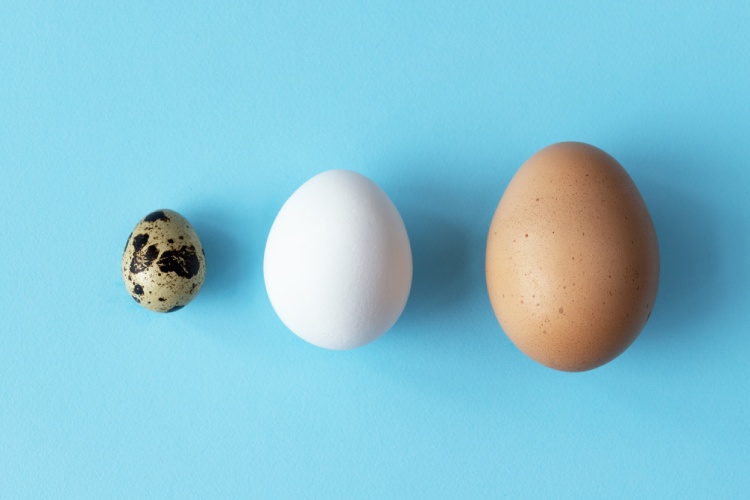
Comparatively speaking, turkey eggs have very few takers. Los Angeles-based recipe developer and author Emily Han talks about turkey eggs and how their texture and consistency make them a perfect option for poached eggs. Moving on, their reportedly richer and creamier texture might make them a better option for baking, too, provided those subscribing to standard recipes are ready to make adjustments.
Partly thanks to social media, the dietary fads and the food industry both keep evolving. So, given the constant change, will they ever become the next best popular eggs after chicken eggs?














